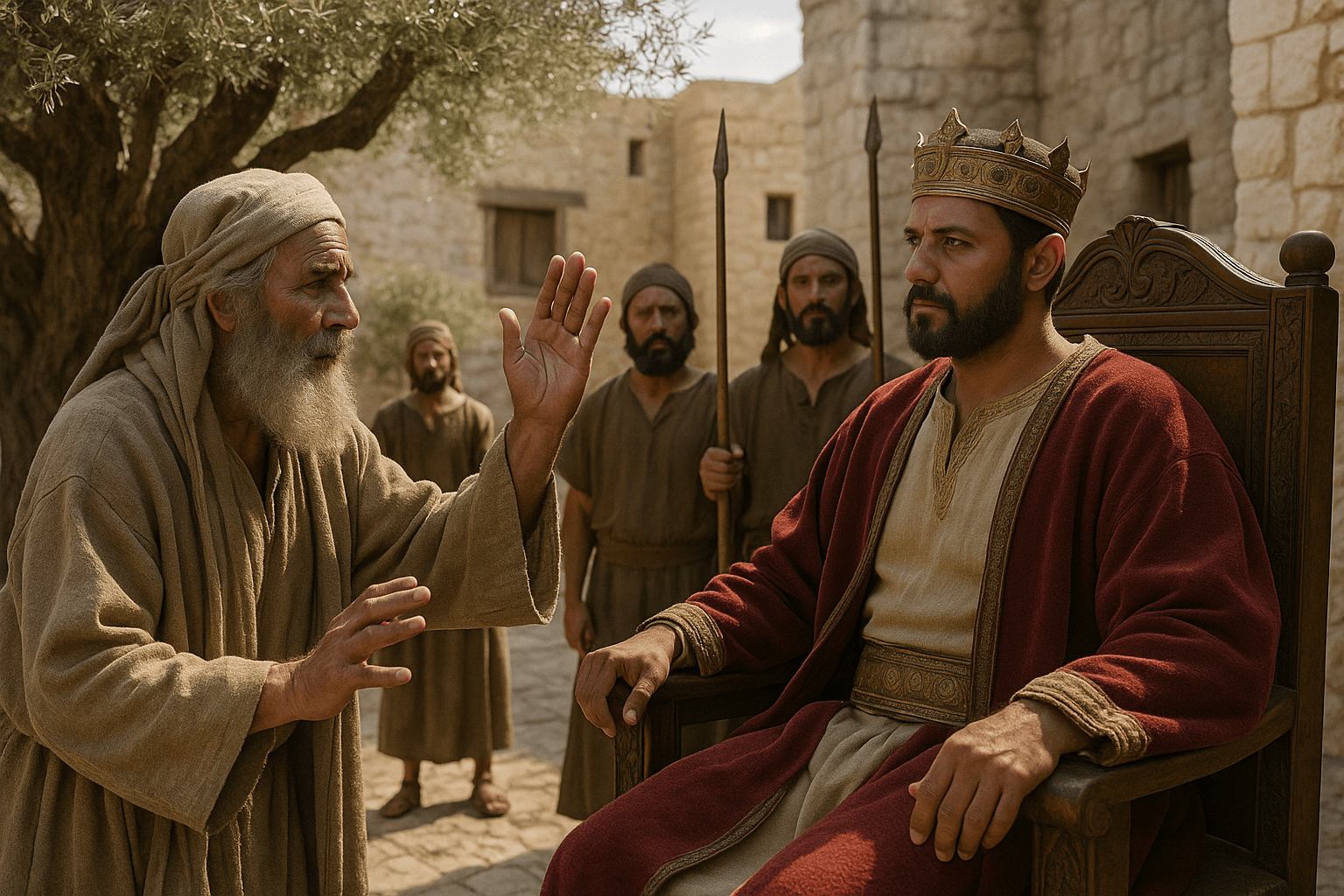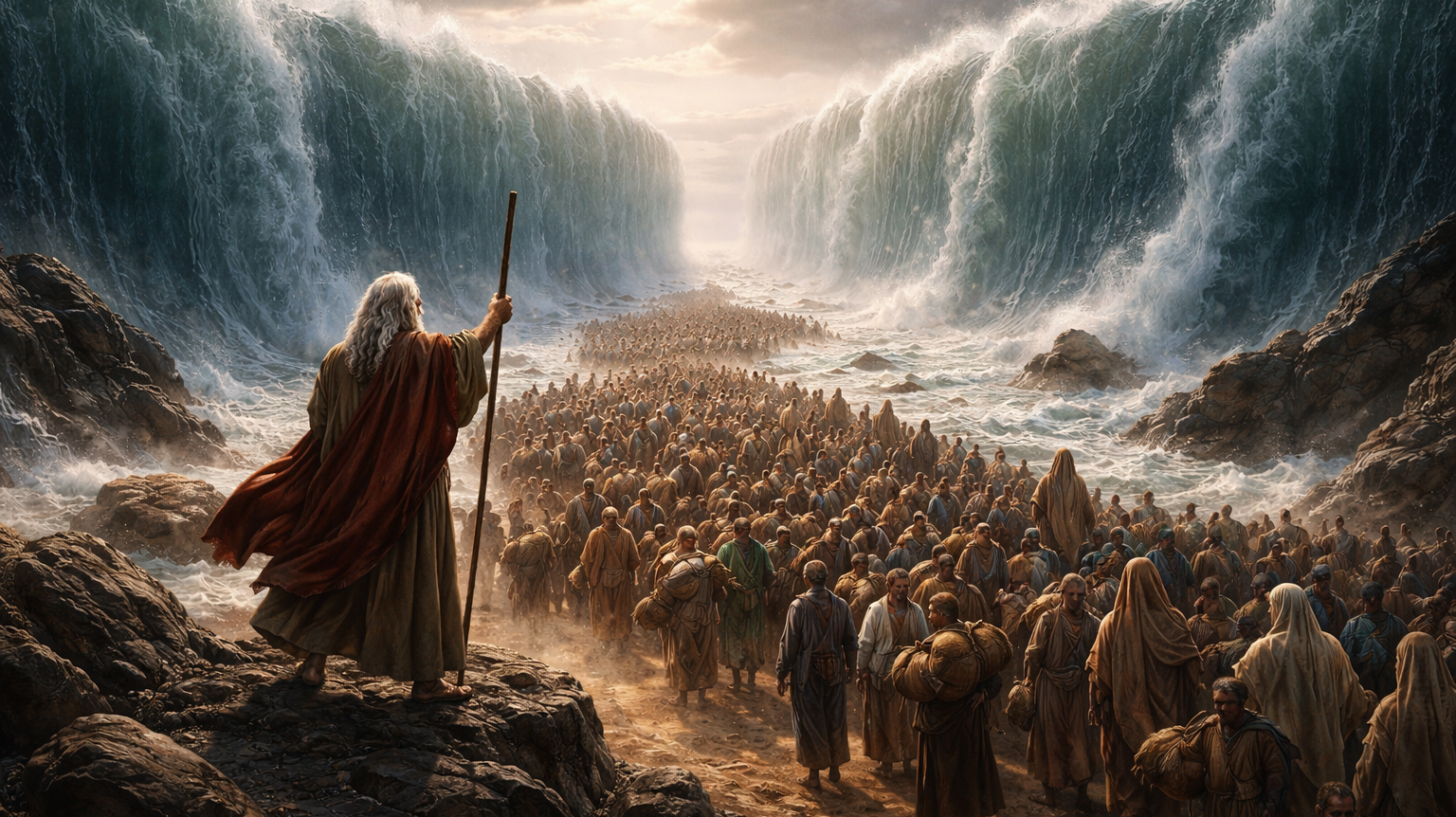Shemaiah is a name mentioned several times in the Bible, but the most well-known Shemaiah was a prophet during King Rehoboam's reign. God used him to deliver important messages, prevent war, and call people to repentance.
1. Shemaiah Was a Prophet of the Lord
Shemaiah is first introduced as a "man of God" during a crucial time in Israel's history.
“But the word of God came unto Shemaiah the man of God, saying…”
— 1 Kings 12:22 (KJV)
He was called by God to speak truth and guide the king and the nation.
2. He Stopped a Civil War
When Rehoboam tried to fight the northern tribes, God sent Shemaiah to stop him.
“Thus saith the Lord, Ye shall not go up, nor fight against your brethren the children of Israel: return every man to his house; for this thing is from me.”
— 1 Kings 12:24 (KJV)
“They obeyed therefore the words of the Lord, and returned from going against Jeroboam.”
— 2 Chronicles 11:4 (KJV)
This prevented bloodshed among the tribes of Israel.
3. He Had Authority as a True Prophet
Shemaiah’s message carried weight because it came from the Lord. Even the king listened to him.
“And they hearkened therefore to the word of the Lord, and returned from going against Jeroboam.”
— 2 Chronicles 11:4 (KJV)
Obedience to God’s voice brought peace.
4. Shemaiah's Message Was Short but Powerful
Shemaiah’s words were often direct and brief, but they carried God's authority. His prophecies had lasting impact.
“The word of God came to Shemaiah… saying…”
— 1 Kings 12:22–24 (KJV)
Even a few words from God, spoken in truth, can change a nation’s path.
5. He Warned of God’s Judgment
Later, when Judah fell into sin, Shemaiah was sent again with a warning.
“Thus saith the Lord, Ye have forsaken me, and therefore have I also left you in the hand of Shishak.”
— 2 Chronicles 12:5 (KJV)
“And it came to pass, that in the fifth year of king Rehoboam, Shishak king of Egypt came up against Jerusalem…”
— 2 Chronicles 12:2 (KJV)
6. He Helped Lead Judah to Humility
Shemaiah’s words led the leaders of Judah to repent.
“Whereupon the princes of Israel and the king humbled themselves; and they said, The Lord is righteous.”
— 2 Chronicles 12:6 (KJV)
“And when the Lord saw that they humbled themselves, the word of the Lord came to Shemaiah, saying, They have humbled themselves; therefore I will not destroy them…”
— 2 Chronicles 12:7 (KJV)
Because of this, God gave them mercy instead of complete destruction.
7. Shemaiah’s Prophecies Were Written Down
He wrote a historical record that included events during Rehoboam’s reign.
“Now the acts of Rehoboam… are they not written in the book of Shemaiah the prophet, and of Iddo the seer concerning genealogies?”
— 2 Chronicles 12:15 (KJV)
This shows his influence extended beyond prophecy—he helped preserve history.
8. His Name Appears Multiple Times in Scripture
“Shemaiah” is a common name. It appears in different contexts and lineages:
“And of the sons of Harim; Eliezer, Ishijah, Malchiah, Shemaiah…”
— Ezra 10:31 (KJV)
“The sons of Shemaiah: Hattush, Igeal, Bariah, Neariah, and Shaphat, six.”
— 1 Chronicles 3:22 (KJV)
These other mentions are not the prophet but show the name’s popularity.
9. He Served During a Time of Spiritual Decline
Shemaiah ministered when idolatry and disobedience were rising after Solomon’s death.
“And it came to pass, when Rehoboam had established the kingdom… he forsook the law of the Lord, and all Israel with him.”
— 2 Chronicles 12:1 (KJV)
Shemaiah remained faithful in calling people back to God.
10. Shemaiah Stands as a Model of Obedience
He always spoke what God commanded, without adding personal opinion.
“If any man speak, let him speak as the oracles of God…”
— 1 Peter 4:11 (KJV)
“For he whom God hath sent speaketh the words of God…”
— John 3:34 (KJV)
Shemaiah didn’t seek attention—he served God's purpose with boldness and humility.
Summary Table: Key Takeaways About Shemaiah
| Fact # | Key Detail | Bible Reference(s) |
|---|---|---|
| 1 | Prophet of the Lord | 1 Kings 12:22 |
| 2 | Prevented civil war | 1 Kings 12:24; 2 Chronicles 11:4 |
| 3 | Recognized authority | 2 Chronicles 11:4 |
| 4 | Gave powerful short messages | 1 Kings 12:22–24 |
| 5 | Warned of judgment | 2 Chronicles 12:5 |
| 6 | Led Judah to repentance | 2 Chronicles 12:6–7 |
| 7 | Recorded historical events | 2 Chronicles 12:15 |
| 8 | Name used for many men | Ezra 10:31; 1 Chronicles 3:22 |
| 9 | Served during spiritual decline | 2 Chronicles 12:1 |
| 10 | Model of faithful obedience | 1 Peter 4:11; John 3:34 |
























